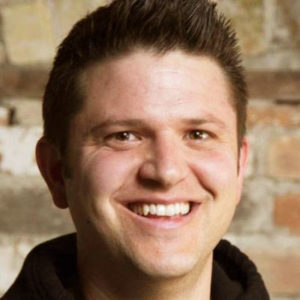As Napoleon (Dynamite) famously once said, “Girls only like guys who have great skills.” Regardless of whether you are trying to impress the opposite sex, it’s important to have a skill that people will (for the foreseeable future) always need. As long as you have an in-demand skill, like nunchucking, bowhunting or computer hacking, you are sure to always be in high demand. Nowadays, it seems that skill is coding.
There are a lot of online resources where you can learn to code but many of them require a lot of discipline from the individual, as learning is often self-paced. Depending on your aptitude for coding, it can become tedious, or alternatively, too complicated.
Indeed, in order to meet the overwhelming demand for tech talent in Minnesota, including its burgeoning healthcare sector, the University of Minnesota launched coding boot camp.
Read More: Minnesota’s burgeoning healthcare tech scene sparks huge demand for coders
So, if you’ve been wanting to learn to code but fear you would need a bit more guidance and support to keep your head up and keep going, what is there to do?
You could consider a coding bootcamp, such as DevMountain. The company offers a 12-week coding bootcamp on campuses in Utah, Arizona, and Texas and boasts an 80 – 85% employment rate within 3 – 6 months of completing the course.
‘But I don’t have the time!’ I hear you cry. No worries, DevMountain offers both full time and part time courses so there’s no need for students to quit their job whilst also learning a valuable new skill and improving their opportunities in the future. It is also beneficial for those who are put off by the idea of going back to higher education for another three years.
The team at DevMountain is comprised of fellow coders who love to share their expertise with budding coders and help to empower the next wave of programmers and entrepreneurs. Its alumni have found jobs at Apple, Reddit, and Nike, and come from every walk of life. Many never imagined they would end up wanting to learn to code.
Courses include Web Development, User-Experience Design, iOS Development, Salesforce Development, and Software Quality Assurance.


Cahlan Sharp- CEO and Founder at DevMountain
Of their methods, CEO Cahlan Sharp said ‘I think what we focus on is the pragmatic side of education and the hands-on side of education, before the theoretical.’ This gives students an easy introduction to coding, before tackling the more intricate aspects of the craft.
This more hands-on approach helps the students as instead of simply learning how to code, they are able to put their knowledge to good use in something they are passionate about.
‘We try to have very project focussed curriculum,” explains iOS Lead Instructor Andrew Madsen. “So you don’t come learn a bunch of stuff that you’re never going to use. Students come in with experience from an industry and they build stuff that I’ve never thought of.’

